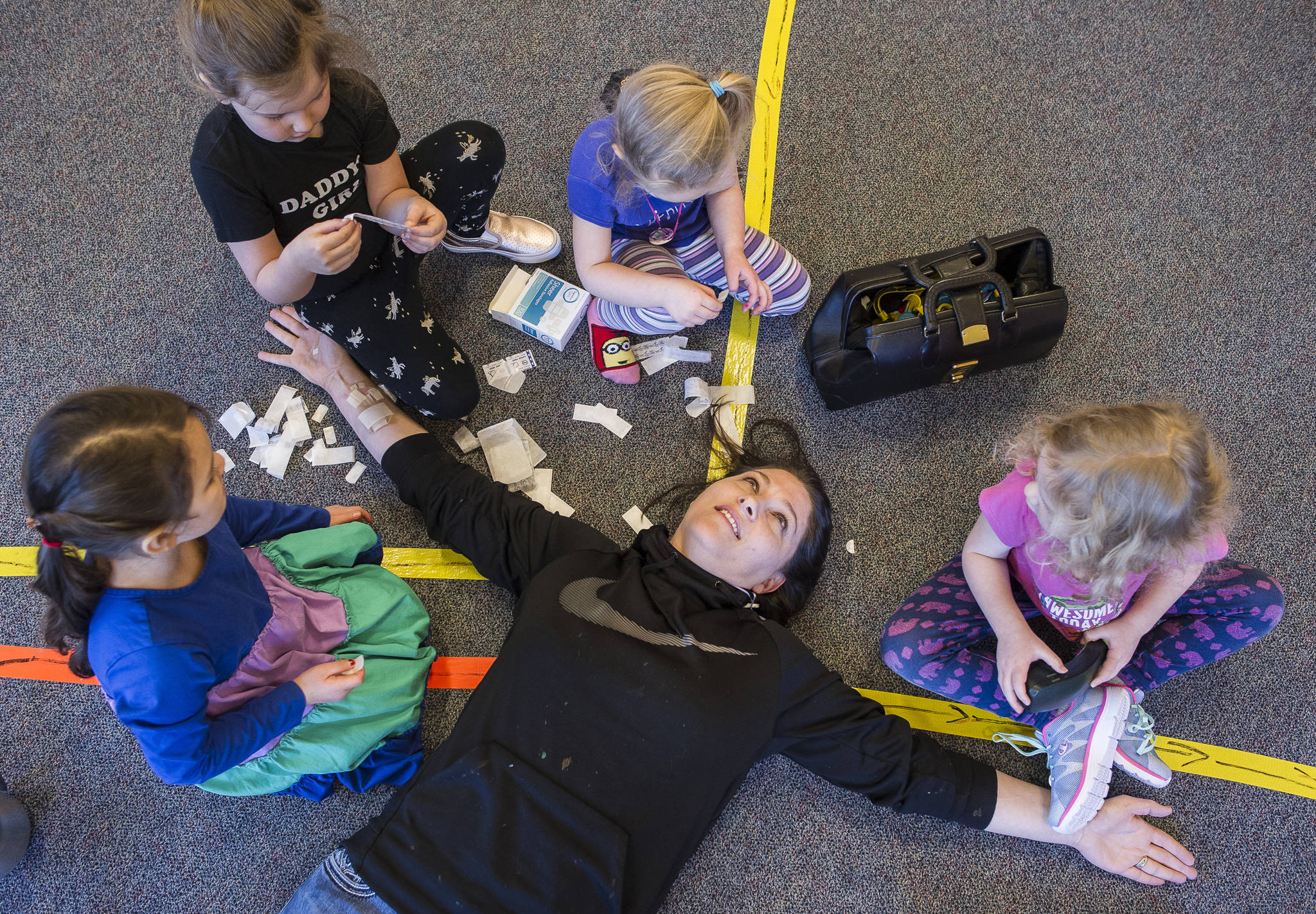Finding early childhood care is challenging in Juneau, and it’s about to get tougher.
TLC Child Care and Juneau Christian Center Daycare are closing their doors at the end of March and May, respectively, their directors said Wednesday, due to numerous factors including financial challenges and increasingly difficult state regulations.
Samantha Adams has run the child care center since 2006 and said that attitudes toward early childhood education need to change, from the city level to the statewide level.
“It’s not any one thing,” Adams said. “It’s not just licensing, it’s not just staffing, it’s not just the cost of spaces. This is all inter-connected, and until we recognize that and we address all of these things, we will never have a sustainable solution to this problem. There has to be a transformational shift in how we think about this stuff.”
For both parents, providers and child care employees, finances are a major roadblock when it comes to child care. Child care in Juneau can cost more than $1,000 per month, which is difficult to fit into a budget. Deenie Rose, the director of Juneau Christian Daycare, said she’s seen many people over the years have to quit their jobs to stay home with their children.
That money gets split many ways between salaries and rent. Adams said she pays $4,000 per month for rent. State regulations require child care providers to have a certain ratio of staff members to children, usually one staff member to every five children: one for every five infants; one for every six toddlers (age 18 months to 36 months); one for every 10 children aged 3 and 4; and one for every 14 children aged 5 and 6.
Juneau Christian Daycare has stopped offering services for infants and toddlers and has decreased its capacity from 90 children to 30 in recent years, and TLC is licensed for 30 children but operates at a capacity of about 15 at this point.
For employees, wages are usually low and services such as TLC and Juneau Christian Daycare don’t offer much in the way of benefits. This makes working there less desirable, and Adams said she often loses staff members to local organizations that can offer competitive salaries and benefits.
This leads to these services having to get younger and less experienced employees. Last August, Rose learned that the Alaska Department of Health and Social Services was increasing the number of employees who have to have a Child Development Associate (CDA) credential.
Becoming CDA certified is a lengthy and expensive process, Rose said, and that regulation was the last straw for her. Adams said it would have been helpful if the state had provided a little monetary support for the regulation change.
“You’re asking programs that can scarcely afford to operate a program, let alone help educate their staff,” Adams said. “You’re mandating something that you’re not providing financial support for, and there’s really no way for programs to successfully meet that regulation.”
Investing now, saving later
The issue of early childhood education has been a hot topic in recent years in Juneau. Educators and economic experts have pointed to studies that show that cities that invest in early education save money down the line. If children are more prepared going into kindergarten, studies have shown, they are less likely to end up in special education (which will save the school district money) and less likely to end up incarcerated (which would save the state money).
The Alaska Department of Education &Early Development released a study in February 2017 that showed that 38.5 percent of children are prepared for kindergarten. The study looked at factors such as social skills, motor skills and communication skills, among others.
The Best Starts initiative, spearheaded in part by former City Manager Kevin Ritchie, is working to raise awareness (and money) for early education. Ritchie has made pitches to the Juneau Chamber of Commerce and the City and Borough of Juneau Assembly, among other groups, about the importance of investing early.
The Board of Education passed a resolution in May 2017 declaring its support for early education programs. Assembly members have also expressed support for Best Starts and its vision, but they did not include Best Starts on their list of programs that would receive funding from its extension of the 1 percent sales tax increase.
Local awareness about early education programs is increasing, but Adams said it’s still difficult to get a major long-term commitment from government officials.
“It’s like pulling teeth to get that buy in,” Adams said, “to get that funding, to get that support, to develop a system that is effective long-term.”
The waiting game
There has long been a large demand for child care in Juneau. Rose has been with JCC since 1987, serving multiple stints as the director, and said she can remember a lengthy waiting list existing in the 1990s. Both she and Adams have had to turn people away recently.
Colleen Brody, the assistant director of the Gold Creek Child Development Center, said their waitlist continues to grow. Gold Creek is licensed to serve 60 children and is always at capacity. Even when Brody had a child recently, it took months for her to get a spot even though she put her name on the list as soon as she found out she was pregnant.
“It’s sad,” Brody said, “because we have families that get on our waitlist when they’re trying to conceive and we might not be able to get them in.”
• Contact reporter Alex McCarthy at 523-2271 or alex.mccarthy@juneauempire.com. Follow him on Twitter at @akmccarthy.

